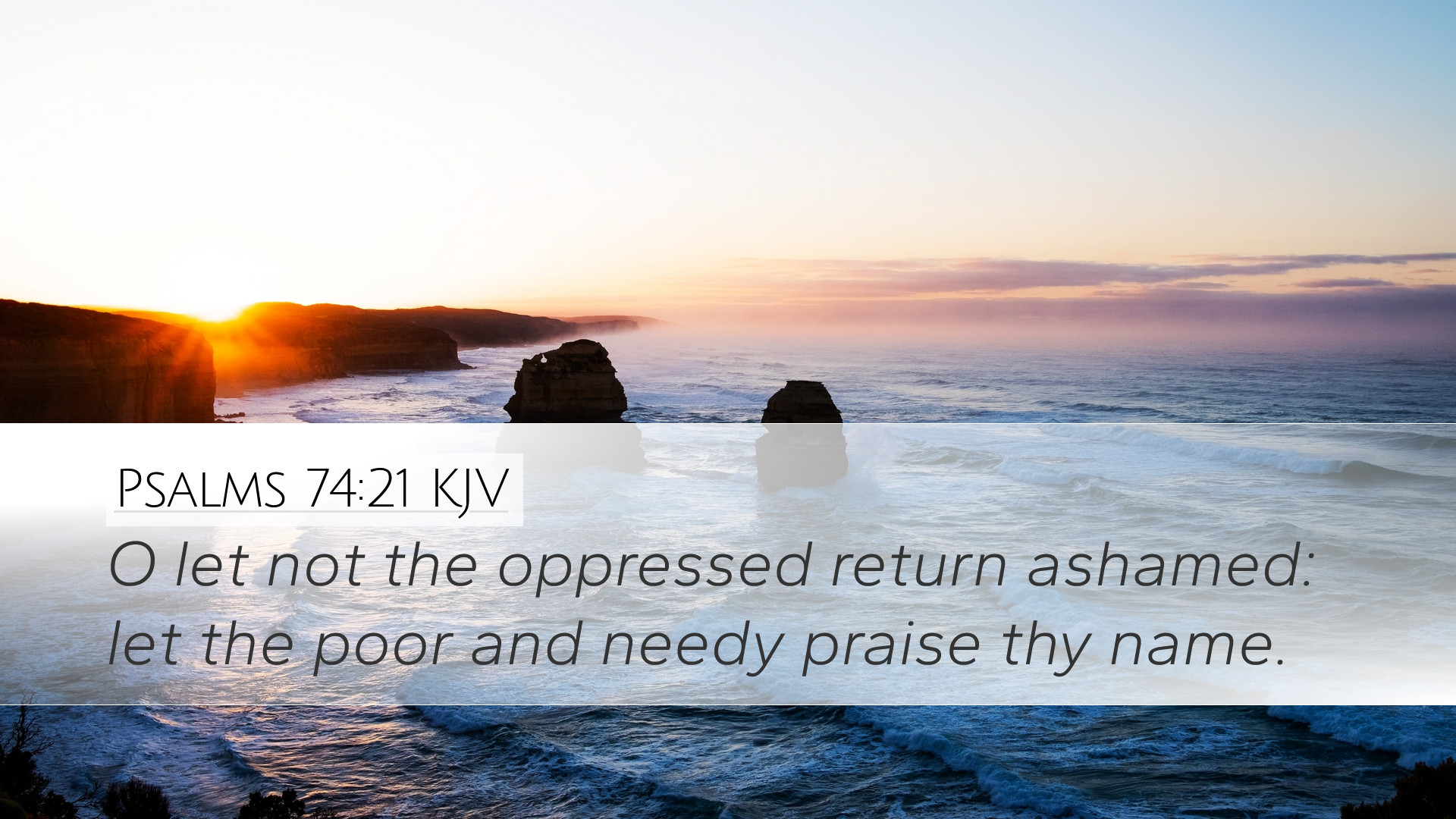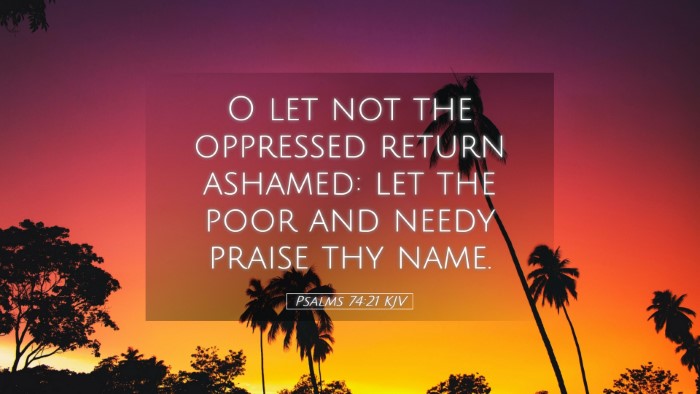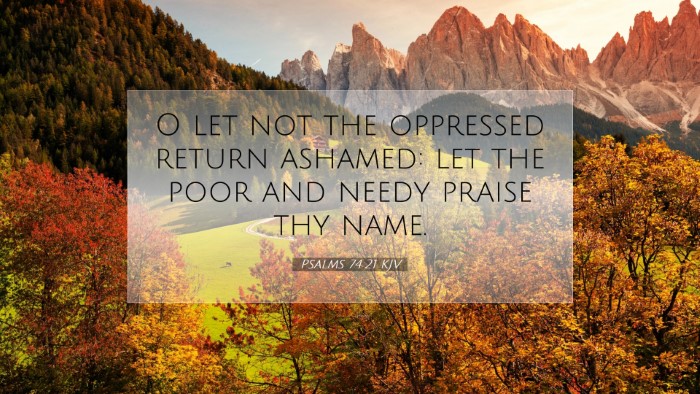Commentary on Psalms 74:21
Psalms 74:21 states: "Oh, let not the oppressed return ashamed: let the poor and needy praise thy name." This verse encapsulates deep themes of suffering, divine justice, and the hope that the faithful can cling to amidst adversity.
Overview
This verse occurs in a context where the psalmist laments the destruction of the temple and the suffering of God's people. The psalm is a corporate lament, where the psalmist calls for God to remember His covenant promises and to rise up in defense of His children. Psalm 74 is attributed to Asaph, a leader of the temple music, who conveys a heartfelt plea to God in times of national distress.
The Themes of Oppression and Shame
In the phrase, "Oh, let not the oppressed return ashamed," we note the psalmist's concern for the dignity of the afflicted. Matthew Henry emphasizes that the oppressed—those who suffer injustice and affliction—should not bear the weight of shame upon returning. He suggests that their faith and reliance on God serve as a vindication against their suffering and the injustices they endure.
Henry also draws attention to the idea that God's intervention is crucial in protecting the honor of His people. When the oppressed call upon the Lord, they seek assurance that their cries will not be met with silence. This reflects a deep theological understanding of God's character as not only a just God but also a compassionate Father who hears the struggles of His children.
The Poor and Needy Praise God's Name
Continuing, the psalmist says, "let the poor and needy praise thy name." Albert Barnes comments on this duality of the poor and needy, suggesting that their poverty may encompass both material lack and spiritual emptiness. In their desperation, they are uniquely positioned to recognize their reliance upon God’s grace and mercy.
- Praise from the Afflicted: The phrase implies that even in their suffering, the poor and needy are called to a posture of praise. Adam Clarke notes that true praise arises from the depths of sorrow, where the faithful acknowledge God's sovereignty even in difficult circumstances. This calls believers to reflect on their situations as opportunities to express gratitude and worship.
- The Role of Faith: Their praise is not mere obligation but a heartfelt response to God's impending deliverance. Despite their circumstances, the psalmist encourages the oppressed to look beyond their immediate plight and to trust in God's faithfulness.
The Call for Divine Intervention
At the core of this verse is a call for God to act. The psalmist urges God to intervene on behalf of the distressed. Henry's commentary highlights that the oppression faced by the faithful is not just a personal struggle but reflects a broader cosmic battle between good and evil. Thus, the plea for help acknowledges God's power to change hearts and alter circumstances.
This call is echoed in the Christian tradition, where Jesus’ ministry focused on bringing liberation to the captives (Luke 4:18). The psalmist’s longing for relief is a foreshadowing of the deeper realities of redemption fulfilled in Christ, where the ultimate oppression of sin is addressed.
The Importance of Remembrance
Further, the preceding and succeeding verses of Psalm 74 emphasize the importance of remembering God's past faithfulness (Psalms 74:1-2). Clarke notes that recollecting God's deeds strengthens the faith of believers in times of distress. When facing suffering, reflecting on the way God has provided and delivered in the past can act as a beacon of hope and encouragement.
Application for Believers
For pastors, students, theologians, and Bible scholars, Psalm 74:21 holds valuable insights:
- Encouragement in Prayer: The verse reminds believers to bring their burdens to God, emphasizing the importance of prayer as an act of faith.
- Embracing Vulnerability: There is beauty in acknowledging one's neediness before God. This scripture invites believers to embrace their weaknesses and present them to God.
- A Call to Community: This psalm is not merely individual but communal. It prompts the church to advocate and care for the oppressed within society, emphasizing justice as a crucial element of Christian witness.
Conclusion
Psalms 74:21 is a profound reminder of God’s compassion towards the afflicted and His commitment to justice. The interplay of oppression and praise speaks volumes about faith in adversity. This verse can encourage believers to both acknowledge their hardships and look toward God's deliverance, fostering a deeper reliance on His unfailing character.
As the church continues to navigate a world rife with injustice and suffering, the truths found within this verse resonate as a message of hope, urging the faithful to trust in the Lord and to bring forward praises even from the depths of despair.


